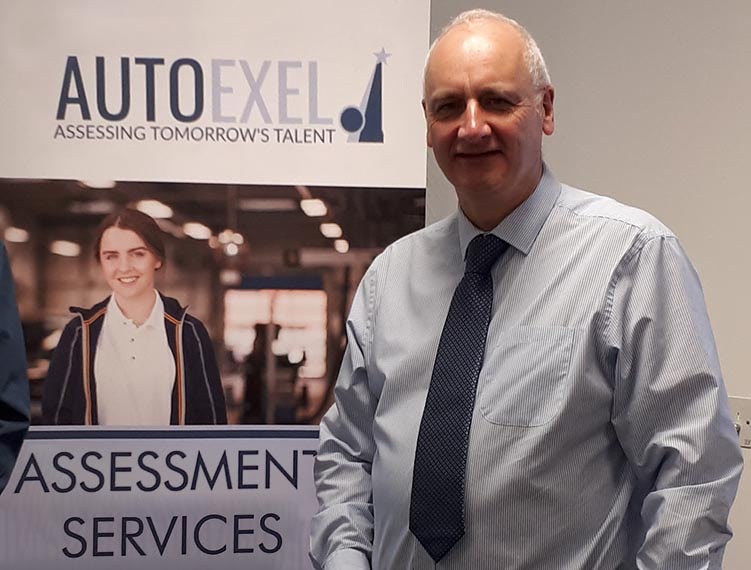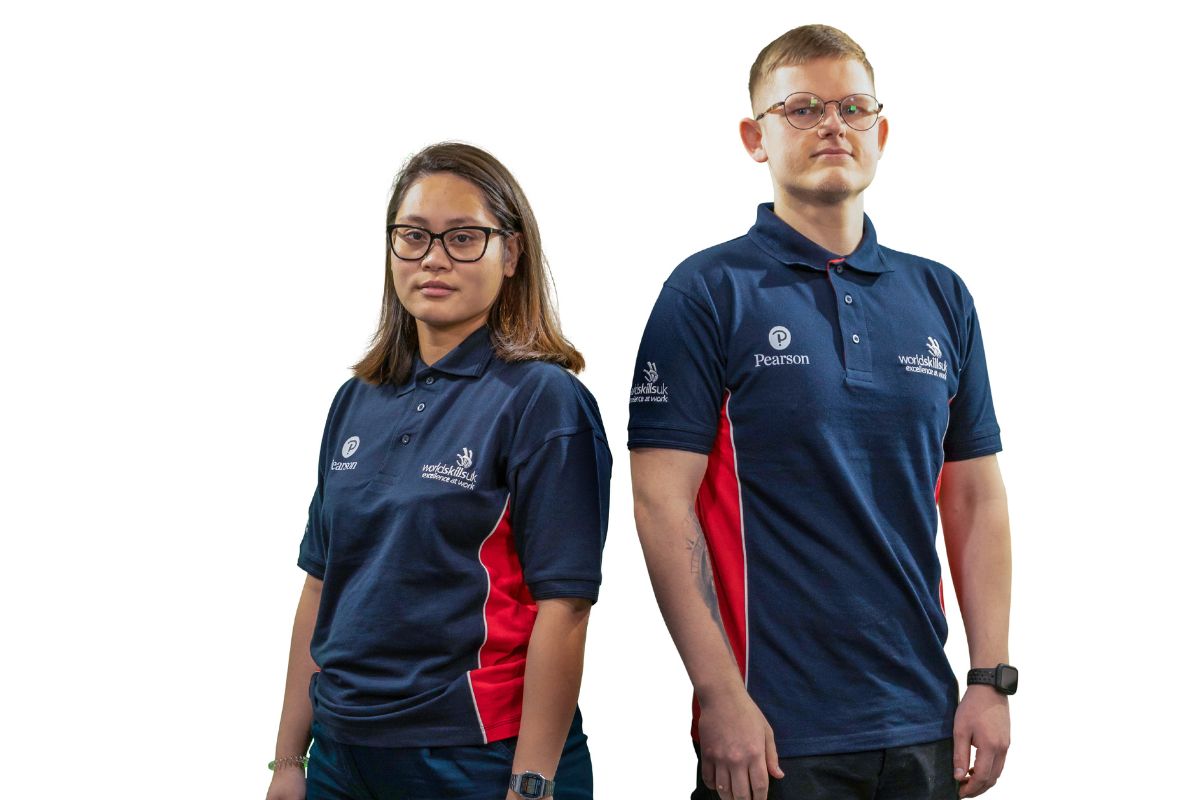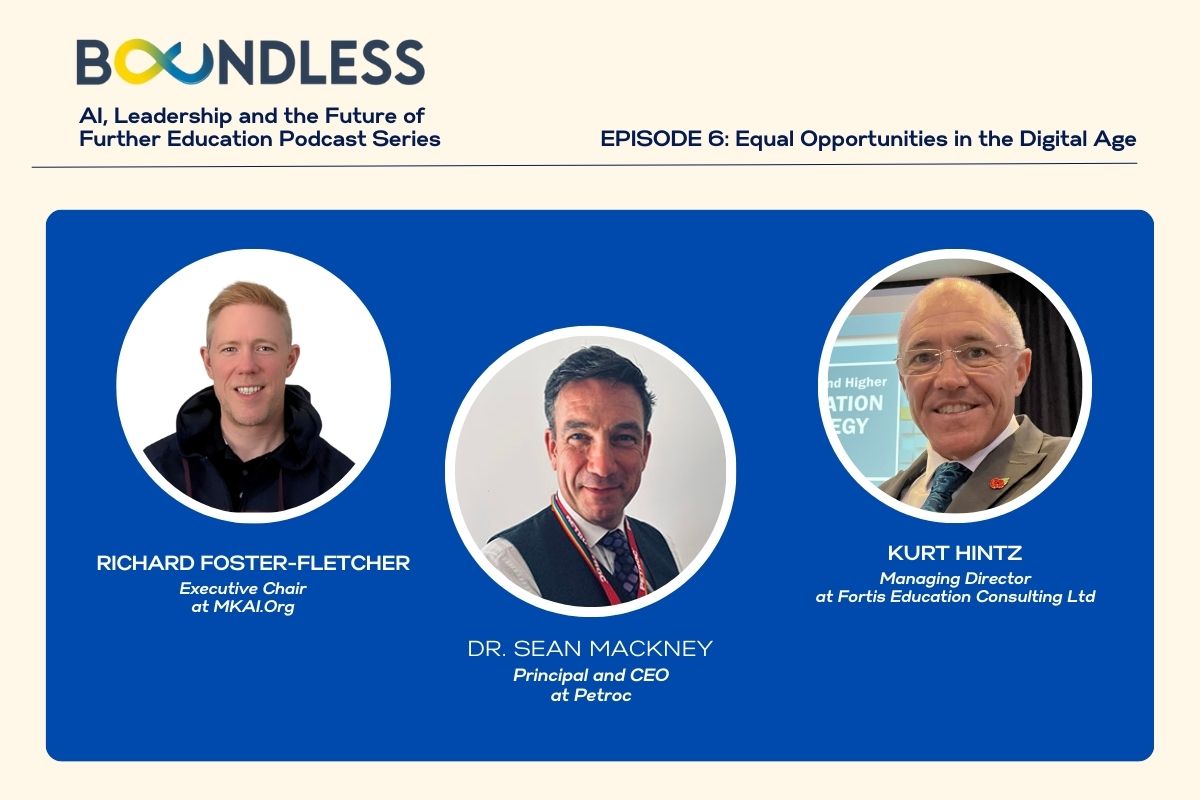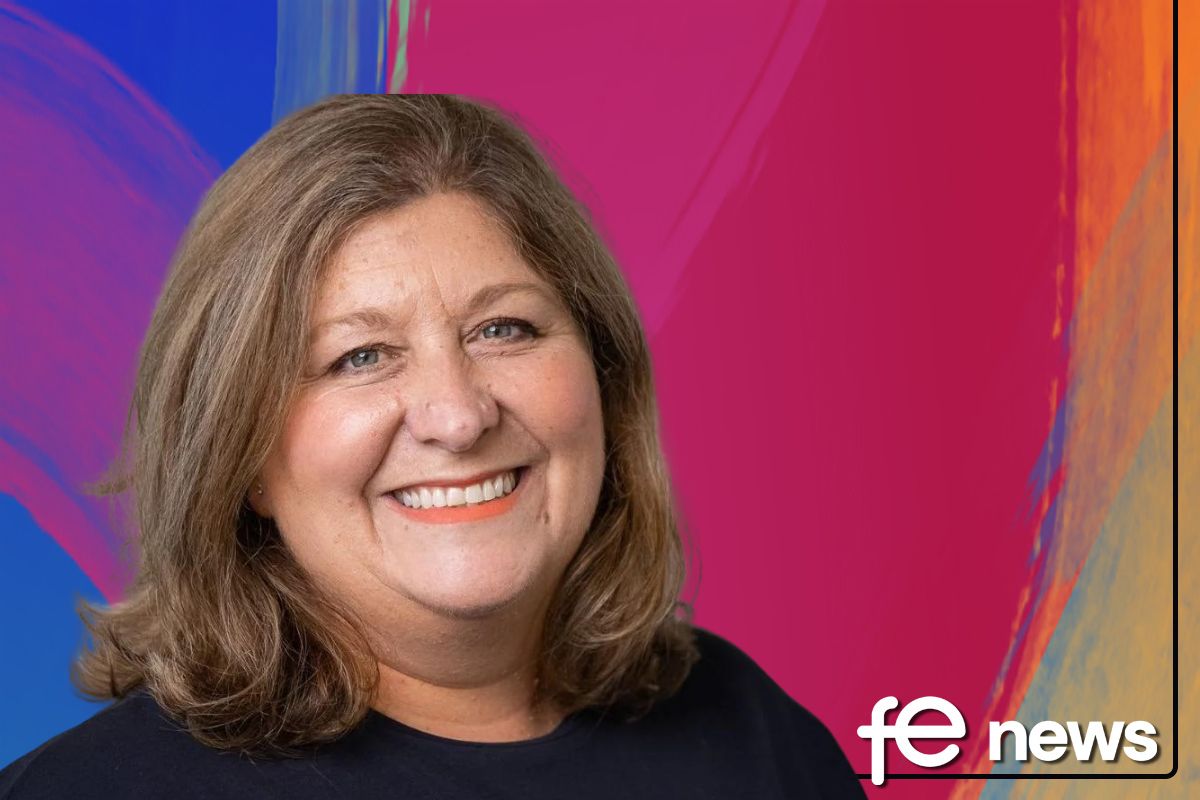Lifting the lid on a successful EpAO journey to Ofqual recognition

On 4 August 2020, the Institute for Apprenticeships and Technical Education (@IfATechEd), announced the next steps for the external quality assurance (#EQA) of end-point assessment. This announcement marks a significant move from EQA being delivered by 4 types of organisation as chosen by the employer group designing the standard (employer led, professional body, IfATE or Ofqual), to EQA delivered by Ofqual (or the Office for Students for integrated degree apprenticeships).
The ambition is for the transition to be complete by the summer of 2022.
One of the acknowledgements of the consultation response (page 4) was the concern that Ofqual regulation might place unnecessary burden on small or niche providers, or those who only wish to offer end-point assessment.
Given this concern, I felt that it would be helpful to small and/or niche EpAOs to hear from an EpAO that has successfully been through the Ofqual recognition process.
Mr Rob Hall, Operations Director at Autoexel, kindly agreed to be interviewed to share his experiences. Rob has provided a fascinating and motivational insight to the journey which I am sure will act as reassurance and inspiration to many of the smaller EpAOs.
Context
Before I launch into the interview, here is a little context, using the July data from the IfATE, ESFA and Ofqual websites.
There are 508 non-integrated degree standards approved, & a further 101 in development. Of these, 76 approved & 2 in development standards already have Ofqual as their named EQA provider. This means that Ofqual will have to take over the EQA of a further 432 approved & 99 in development standards.
There are 290 End-point Assessment Organisations (244 excluding those assessing integrated degree standards). 36 of these EpAOs are on the register to deliver EPA for standards already EQA’d by Ofqual. This means that Ofqual will have a further 208 EpAOs to approve under its conditions when they take over EQA for non-integrated degree standards.
Ofqual currently recognises 159 organisations across all types of qualifications, of which 32 are already recognised for end-point assessment. Of those 32 organisations, 7 appear to solely end-point assessment organisations: Association of Professional Sales; Autoexel Ltd; Extractives and Mineral Processing Industries Awards; Bespoke Professional Development and Training Ltd; DSW Consulting; Insulation Environmental Training Trust Ltd; Manpower Services Limited.
Case Study: Autoexel’s Ofqual journey
It is with great thanks to Rob Hall, Operations Director at Autoexel, for his time and enthusiasm to share his experiences of Autoexel’s Ofqual journey:
Autoexel’s Assessed Standards:
- Autoexel first became an end-point assessment organisation in 2018 with approval on the register for their first standard (Motor vehicle service and maintenance technician, light vehicle, currently EQA’d by the RMISC).
- A second standard was added to their portfolio in February 2019 (Accident Repair Technician), and now,
- following Ofqual approval, a third standard has been added to their portfolio (Autocare Technician).
To date Autoexel have end-point assessed approximately 75 apprentices and have undergone 2 external quality assurance visits (desktop and monitoring).
What is the history of Autoexel, and what led or inspired Autoexel to move into the end-point assessment market place?
Autoexel has been operating in the automotive industry since 2004, working with many of the largest and most recognisable automotive manufacturers on the development of training and assessment materials and quality assurance. In addition, I have been involved in the development of automotive related standards since 2013.
Autoexel, made a business decision to apply for Ofqual recognition for 3 key reasons:
- Firstly, to be recognised on a par with the large awarding bodies such as City and Guilds and IMI, and to therefore be a viable alternative and choice for employers of apprentices.
- Secondly to enable expansion in the end-point assessment market place; and
- Thirdly to ensure that our structure, policies, processes, system, culture and ethos are of the highest quality and therefore the best for the automotive industry.
What is the size of your organisation?
Autoexel employs 3 full time equivalent staff and has a bank of approximately 25 associates that are utilised to support key functions such as qualification design, assessment and quality assurance.
What were the timeframes of your Ofqual journey to approval?
In March 2019 we met with Ofqual, and in November 2019 we submitted our application. In February 2020 we were invited to an Ofqual panel meeting and in May 2020 we were approved.
Between March and November 2019, we carried out a full review of all our processes and procedures against the Ofqual conditions, working with our Board to make sure we had or adopted the appropriate processes, policies and procedures that would meet the conditions, stand up to scrutiny, but most importantly were “living and breathing” .
No policy, procedure or process is a document that just sits on a shelf. Autoexel recognised that we had to own, understand and operate every element of what we were preparing for Ofqual, that we would be questioned and scrutinised on it, and that its operation was critical to the quality and reputation of Autoexel, end-point assessment and the apprenticeship brand.
There are a lot of documents to submit alongside our application that have to be scrutinised by Ofqual and that is why there is a 2 to 3-month time frame from submission to decision/invite to panel.
The decision post panel meeting was due to be a couple of weeks, but due to Covid-19 it took 2 months.
Ofqual has quite a number of documents to read, understand and cross reference, some of which are substantial. How did you approach this to ensure you met all the criteria?
My best advice is to tackle it bit by bit. Don’t try it all in one go as you may feel overwhelmed. For example, we looked at structure and governance, then we looked at conflict of interest and so on.
Once you have tackled each element you can then start to bring them together. This final activity is also important, as there is a lot of cross referencing between the conditions, applications and therefore your documents.
If you start with all the cross referencing you can get in a muddle, so is best to take it bit by bit and then bring it all together.
If you approach the journey to recognition on the basis of using Ofqual to improve the company / organisation, rather than ‘doing it because you have to do it’, it will provide greater motivation and focus.
What were the most frustrating elements of the application and approval process?
We did find the use of non-end-point assessment terminology confusing, such as qualification rather than end-point assessment, but it did not act as a blocker, we just needed to get used to it.
We also took a while to understand ‘centres’ and ‘qualification level’, as these are not the same in end-point assessment. We do not determine the level of an apprenticeship, that is already determined, so we had to focus on explaining how we make sure we designed our question banks and tools at the appropriate level.
End-point assessment does not have ‘centres;’ in the same way qualifications do, so we used the Ofqual guide to set our definition of ‘centre’ in the context of end-point assessment, and made that clear at the start of our application.
One tip I would mention here to help overcome this, is an Ofqual video with definitions:
https://www.youtube.com/watch?v=FA4csIGC5Us
The length of time is frustrating, but that is for a reason, Ofqual is the highest quality benchmark, so organisations need to understand that there is lot for the applicant to do to prepare and submit, and for Ofqual to do during the checking/authorisation process.
One our most regular internal discussions in the development of our policies, processes and procedures in support of our application was “how”.
It would have been wonderful to just be able to ask Ofqual how to do something, but we had to learn that Ofqual is not there to tell you how. It is our responsibility to describe how we will meet the conditions.
It does take time to get your head around as you are never sure whether what you are developing would be seen as acceptable to Ofqual, but you just have to go with it and always refer to the conditions as you develop it.
It also ultimately helps as it means that, as the applicant, we take absolute ownership of all that we design and develop and know it inside out by the time we submit and attend the panel.
What were the positives of the application and approval process?
We firmly believe that the application journey has made us a better organisation. We have stronger policies and processes and a more robust approach to the management of risk and contingency planning.
The application process enabled us to identify gaps, where we didn’t realise we had gaps, and to address in them in a robust manner.
You mentioned the involvement of your Board, is this equivalent to a governing body? If yes, how did you identify members and how have they been involved?
Yes, our Board provides our governance and have been critical in the process. I led the Ofqual process internally and used members of our Board to review what was being enhanced, designed and developed based on their skill set. They acted as a confidential critical friend to all the work.
The Board met every couple of months but we maintained regular communication between meetings when liaising with individual members on their particular areas of expertise.
Our Board is made up of experts from the industry with a range of skills, for example, finance, quality, business, marketing. All board members are passionate and enthusiastic about the industry, the membership is voluntary and we cover their expenses. It was initially set up using our links across the industry to find enthusiastic individuals. As we grow and develop, we will also look to recruit board members via advertisements, to bring additional external supportive scrutiny to our organisation.
Could you say a bit more about the final part of the journey, the Ofqual panel and your approval?
We attended our Ofqual panel meeting in February 2020. Prior to the panel we were informed about what Ofqual wanted to discuss/explore in more detail, and in our case it was conflicts of interest, malpractice/maladministration, complaints/appeals, accounts, and the qualifications of our assessors. We were able to bring along as many from Autoexel as we wished, we chose to send myself and 2 Board members.
Ofqual had 11 representatives at the panel, which at first is intimidating but they were all extremely friendly and professional, and we soon realised that the each Ofqual attendee was a specialist in each of the areas they wish to questions us on.
The panel meeting was 1 hour, and they questioned us in details about our policies, procedures and approaches. At the meeting we were informed that we would have a decision within 2 weeks. Unfortunately, due to the emergence of Covid-19 we do not receive our approval until May 2020.
Our approval was via letter, and it contained some special conditions, which are essentially final actions that we must take on specific elements of our policies/processes and procedures to ensure absolute compliance, alongside a timeframe for completion.
If you could offer any words of wisdom to EpAOs based on the Autoexel journey what would they be?
I would say that my 5 tops tips are:
- Be realistic, it is doable but it is time-consuming. 2 years ago, we started from a blank sheet of paper, now we end-point assess 3 standards and are Ofqual approved
- Read all the documents but tackle the process bit by bit, don’t try it all at once
- Make sure you have a critical friend that can support in the scrutiny of your existing, and development and scrutiny of your new, policies, processes and procedures
- Look at the Ofqual UTube channel for helpful videos
- Live and breathe what you do – Ofqual is about living policies processes and procedures, nothing is just written and put on a shelf.
Thank you so much Rob, for your time and for your open and honest insight into your journey to Ofqual recognition, and of course, CONGRATULATIONS.
Jacqui Molkenthin, JEML Consulting
If you are interested in any of my other articles about end-point assessment, they can be accessed via these links:
- What do End-point Assessment Organisations (EpAOs) value most from their External Quality Assurance (EQA) providers? https://www.www.fenews.co.uk/featured-article/50273-what-do-end-point-assessment-organisations-epaos-value-most-from-their-external-quality-assurance-eqa-providers
- End-point Assessment Organisation perspectives on the Ofqual recognition process https://www.www.fenews.co.uk/featured-article/50482-end-point-assessment-organisation-perspectives-on-the-ofqual-recognition-process
- The art of the possible in end-point assessment observation during Covid-19 https://www.www.fenews.co.uk/featured-article/49326-the-art-of-the-possible-in-end-point-assessment-observation-during-covid-19
- EPA during Covid-19 https://www.www.fenews.co.uk/featured-article/45131-remote-end-point-assessments-during-covid-19-7-key-points-for-end-point-assessment-organisations-to-consider
- EPA from the perspective of assessors and EpAOs https://www.www.fenews.co.uk/featured-article/44125-what-do-end-point-assessors-and-end-point-assessment-organisations-think-about-the-world-of-end-point-assessment, the full survey report can be downloaded here https://www.linkedin.com/posts/activity-6639176666172190721-Nmgv/
- Ofqual for micro EpAOs https://www.www.fenews.co.uk/featured-article/40671-an-introduction-to-Ofqual-for-micro-end-point-assessment-organisations
- Conflicts of Interest in end-point Assessment https://www.www.fenews.co.uk/featured-article/40481-conflicts-of-interest-in-end-point-assessment-epa
- Assessing behaviours in EPA https://www.www.fenews.co.uk/featured-article/38387-assessing-behaviours-in-end-point-assessment-epa
- Translating an apprenticeship standard into a curriculum https://www.www.fenews.co.uk/featured-article/29754-translating-an-apprenticeship-standard-into-an-apprenticeship-curriculum-in-8-steps
- How to become an EpAO https://www.www.fenews.co.uk/featured-article/33148-interested-in-becoming-an-end-point-assessment-organisation-nine-key-things-you-need-to-consider-epao
- Gateway to EPA, more than just a tick box exercise https://www.www.fenews.co.uk/featured-article/28171-apprenticeship-gateway-to-end-point-assessment-more-than-just-a-tick-box-exercise
- Lifting the lid on EQA https://www.www.fenews.co.uk/featured-article/30412-lifting-the-lid-on-external-quality-assurance-of-end-point-assessment
- Employer led EQA https://www.www.fenews.co.uk/featured-article/31203-employer-led-end-point-assessment-external-quality-assurance










Responses